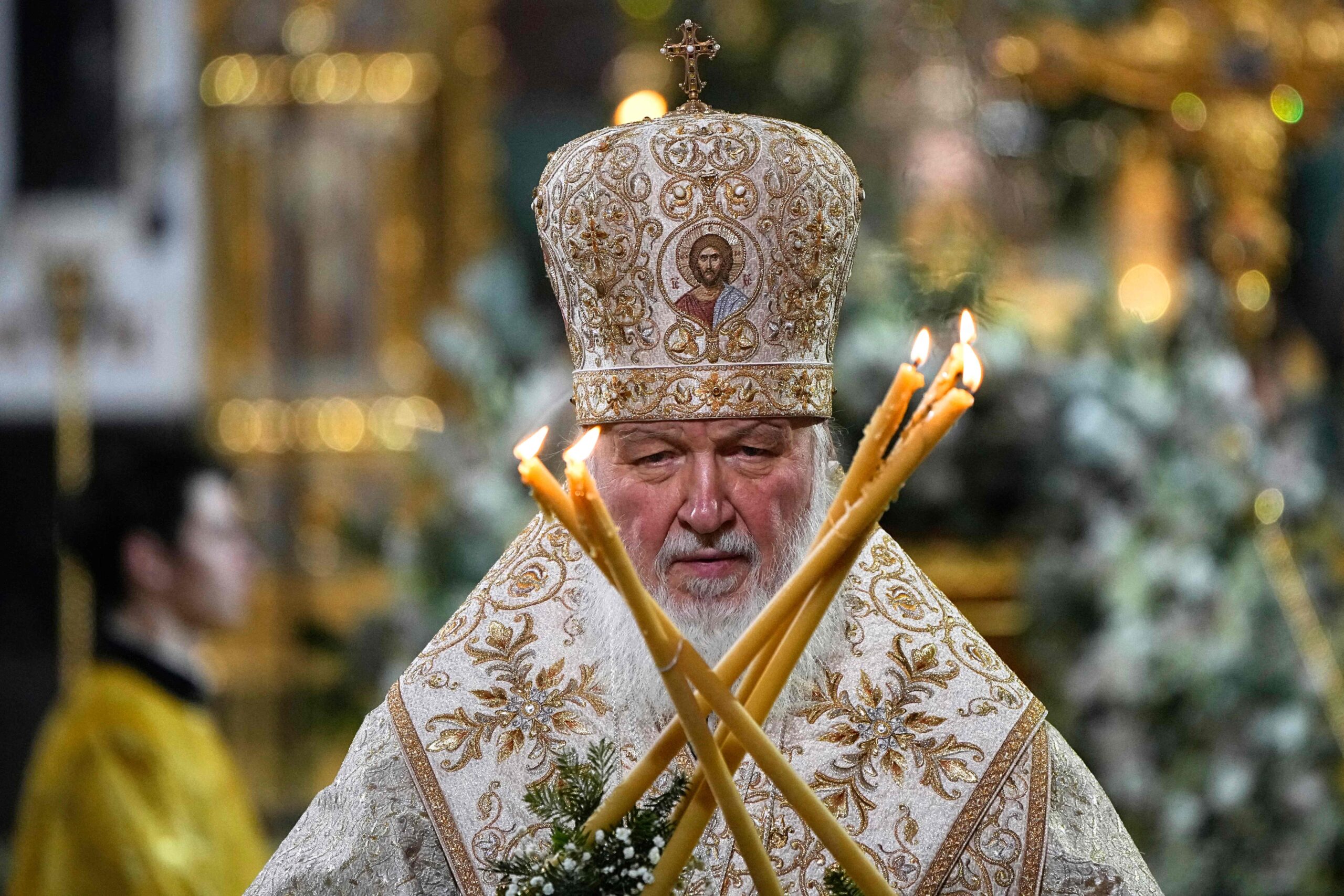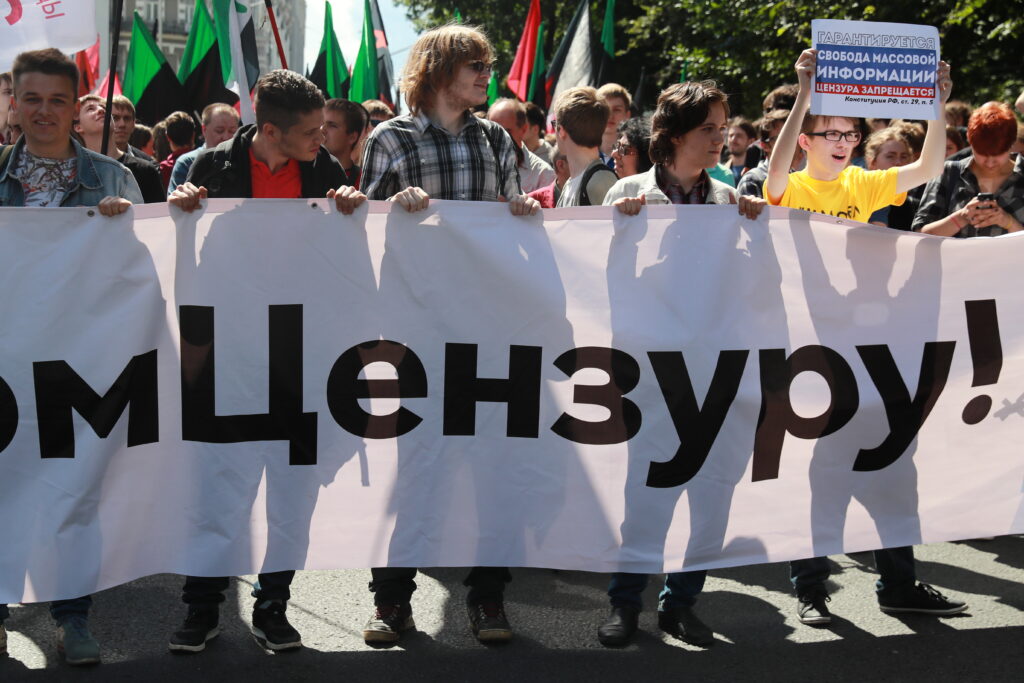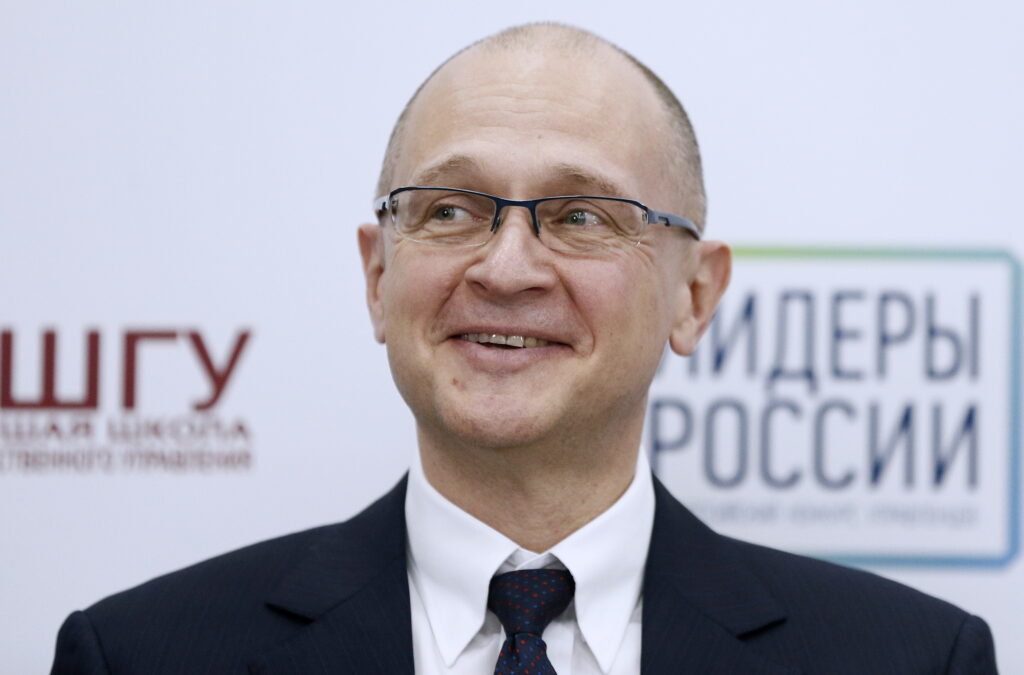Prior to Russia’s full-scale invasion of Ukraine, the leaders of the Moscow Patriarchate supported the main narrative promoted by the Kremlin and Vladimir Putin about ‘traditional values’ and ‘spiritual clamps’, but allowed themselves a certain degree of opposition on issues of overarching importance to Russian authorities. First of all, this concerned Crimea. For example, Patriarch Kirill has never visited Crimea after its annexation by Russia. Moreover, until the summer of that year, the Crimean dioceses were under the jurisdiction of the Ukrainian Orthodox Church (UOC) of the Moscow Patriarchate, not the Russian Orthodox Church (ROC). Of course, Patriarch Kirill supported the Russian authorities, but only where this support did not disrupt his own activities. The UOC is highly important to the Moscow Patriarchate: it comprises over ten thousand parishes, and Ukrainians are more religious than the Russians. Therefore, Kirill was trying to act more diplomatically and avoid irritating the Ukrainian leaders so that they would not take unfriendly steps towards the UOC. Back in July 2021, the patriarch congratulated President Vladimir Zelensky on the Baptism Day of Kyivan Rus. This tactic generally worked until February 2022. Moreover, since the sensitive issue was ignored, this helped to sustain the relations between the Moscow Patriarchate churches and dioceses in the West with the authorities of the respective countries. Patriarch Kirill and a large part of the Moscow Patriarchate guarded their interests and acted as diplomats.
After the outbreak of the war, the leaders of the Moscow Patriarchate were clearly confused. Kirill’s public sermons and addresses to the faithful were fairly rare, and the Patriarch himself declared peace and empathy for both Russians and Ukrainians, at least formally. However, this is not to say that Kirill opposed the war at that time. He talked about the ‘united people’ of Russia and Ukraine (in fact, Kirill had started doing this long before Putin). The head of the Moscow Patriarchy made sure to mention ‘external threats’. He tried to sit in two chairs, being careful not to go into hawkish rhetoric so as not to alienate the Ukrainian congregation, and not forgetting to make curtsies towards the Kremlin.
The Patriarch in the offensive
At present, Kirill declares that «both the Church and all those have actual and potential influence on our society must do everything to ensure that Russia wins.» The Patriarch speaks of ‘spiritual support’ for Russian soldiers when they hear the command ‘Charge!’: «they must stand up and face death.» In a speech on the anniversary of his enthronement on 1 February, the head of the Moscow Patriarchate actually used military language, declaring that the Moscow Patriarchate found itself «in the front line» of the fight to preserve «Christian values» and sustain the «moral compass.»
The speeches of the top hierarch have become extremely ideological. He repeats the official narrative promoted by the Kremlin and Vladimir Putin about the confrontation between Russia and the West, and even uses calques from presidential statements. While Putin calls Ukraine ‘Anti-Russia’, Kirill declares Western values to be ‘anti-values’ that ‘contradict God’s plan’. The Patriarch echoes the President in saying that Russia is «a real alternative to the absolute dead-end that the Western civilisation has hit in its development.» Nowadays, Kirill makes frequent public appearances with such speeches.
Other prominent members of the Patriarchate have also actively spoken in support of the war. In this respect, let us consider the telling example of Savva Tutunov, archbishop of Zvenigorod, patriarchal vicar and deputy governor of the Moscow Patriarchate. He is one of the most influential figures in the Patriarchal Chancellery and, according to sociologist of religion Nikola Mitrokhin, one of Kirill’s likely successors on the Patriarchal post. Archbishop Savva’s biography is noteworthy: still fairly young, born in Paris to an immigrant family, he enjoys the favour of the Patriarch. Until relatively recently, Tutunov spoke in a quite liberal spirit and could be considered a fairly liberal clergyman. Nowadays, however, the archbishop preaches about the «war against the Russian people in Donbass,» which began in 2014, and the fight against ‘globalism’.
At the same time, the church is fighting against dissenters. In early February this year, Alexey Koval, a priest at St. Andrew the Apostle Church in Moscow’s Lublino district, was suspended by Patriarch Kirill for replacing the word ‘victory’ with the word ‘peace’ in a special prayer dedicated to the war. This prayer in support of the Russian army appeared in September, after the start of the mobilisation. Prior to this, the churches across the Moscow Patriarchate prayed for ‘peace’ in Ukraine and an end to the war.
From ‘diplomats’ to propagandists
Over the year, Patriarch Kirill and his entourage have become fully embedded in the official governmental narrative: they follow it its guidelines while complementing and enriching it. This choice could be seen as ‘pragmatic’. Almost immediately after the start of the war, the UOC hierarchs began to criticize Kirill, and some of them demanded autocephaly from the Moscow Patriarchate. Their words and actions are understandable, since the Moscow Patriarch has never condemned the war. The Ukrainian authorities began to deprive the UOC of key church buildings. The UOC was moving away from Kirill’s influence, while Western churches and dioceses also began to express discontent with his stance, which was perhaps not very radical, but already well-established at the time.
However, it is likely that the Moscow Patriarch and his entourage would have become proponents of the war anyway. This is reflected in their zeal in preaching about victory over Ukraine and the ‘anti-values of the West’. One might doubt that Kremlin officials are directly demanding such ideologically charged statements from the leaders of the Russian Orthodox Church. Instead, the hierarchs themselves have decided to demonstrate ultra-loyalty to the government in the expectation of reciprocation and support for the church.
When they speak in public, the Patriarch and some of the bishops do not wear the hats of clergymen but, instead, those of politicians or officials. The representatives of the Moscow Patriarchate have found a way to fit into secular hierarchies, seeking and finding a place for themselves. One might say that Kirill is trying to turn the church into a department of the Kremlin, which can be called the Outreach Department for Believers. As propaganda is being disseminated by preachers from the pulpits, the Patriarch is demanding that the ‘frontline priests’ be provided with the same privileges as the military. The Patriarch ‘mirrors’ Vladimir Putin, and the bishops from his entourage ‘mirror’ the Patriarch himself. In addition, the Patriarchate still has ultra-conservative priests and bishops among its ranks, many of which have been part of the pool of the Tsargrad TV channel, owned by Orthodox oligarch Konstantin Malofeev. While Kirill and the hierarchs who are close to him seemed liberal in their background, they are in the same boat with the radical clergy now. They are no longer ‘diplomats’ with their own interests but, in fact, subordinates of the Russian president: their loyalty has undermined their status. The status of a mediator (and the Moscow Patriarchate has undoubtedly aspired to be a mediator between the Kremlin and the faithful) has always been higher than that of a propaganda worker.










